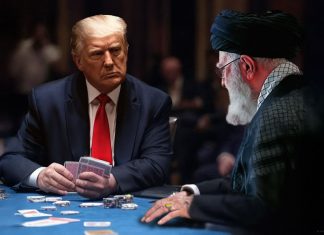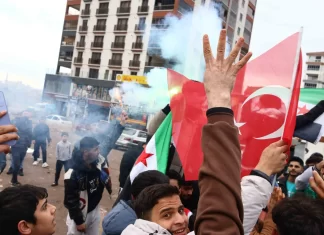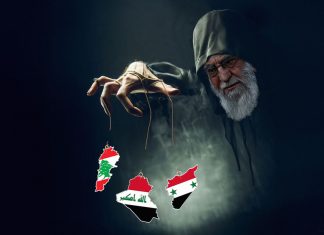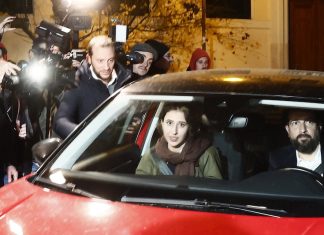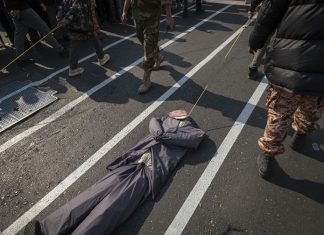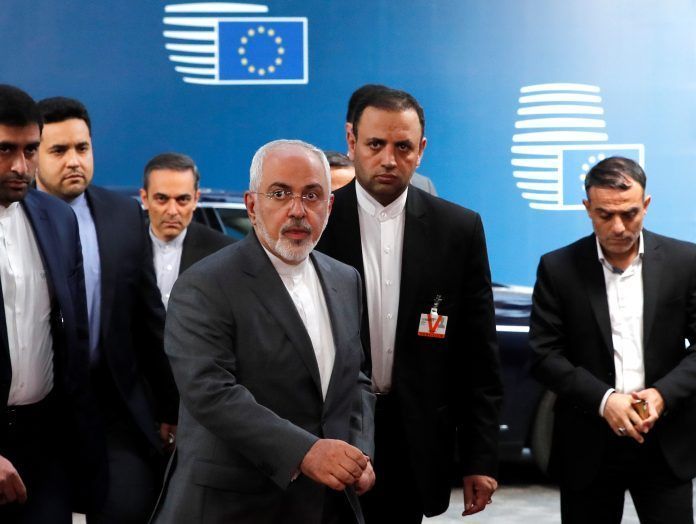
By Ahmad Rafat
Iranian Foreign Minister Mohammad Javad Zarif concluded his tour of several European countries, which had begun in Damascus, with a visit to Dublin, in Northern Ireland.
In what may be his last official trip as Iran’s foreign minister, Mr. Zarif met and held talks with senior officials in Spain, Italy, Vatican, and Ireland. Zarif initially planned to stop in Vienna, where talks on reviving the Joint Comprehensive Plan of Action (JCPOA), better known as the Iran nuclear deal, are currently held.
Zarif canceled his visit to Vienna reportedly after Austrian Chancellor Sebastian Kurz ordered the Israeli flag to be raised at the Austrian Chancellery in solidarity with the country and in protest against rocket and missile attacks on Israel by Hamas (Islamic Resistance Movement) and the Palestinian Islamic Jihad (PIJ).
Besides the usual bilateral talks, Zarif also discussed other issues with his Spanish, Italian and Irish counterparts, including rebooting the JCPOA, the U.S. rejoining the agreement, and lifting all economic sanctions on Iran. Also discussed were clashes between Israel and the terrorist groups Hamas and the PIJ in the Gaza Strip.
Zarif is well aware of the Europeans’ fear of a protracted war in Israel and Gaza and has, therefore, tied the crisis in Gaza to Iran’s concern over the crippling U.S. economic sanctions. Zarif’s “diplomatic” solution calls for European governments to pressure the U.S. to lift all sanctions. In exchange, Hamas would stop its “field” operation, namely firing rockets and missiles from Gaza toward Israel.
What differentiates the latest clashes from all the previous ones is that senior Islamic Republic, Hamas, and PIJ officials have openly said that missiles fired from Gaza towards Israel were made either in Iran or with the help of Iranian experts in underground tunnels in Gaza.
The Islamic Republic has finally admitted what Israeli officials and several news outlets have been saying for years, namely that it has provided financial and military support to terrorist groups in the Gaza Strip. Tehran hopes to use its influence in the region as a bargaining chip in international negotiations.
Iran Leader Urges Muslim States to Back Palestinians Militarily, Financially
In his meetings with Spanish and Italian foreign ministers Arancha Gonzalez Laya and Luigi Di Maio, Mr. Zarif asked them to join the three original European signatories of the JCPOA, France, Germany, and Britain, hoping that the scale would tip to Iran’s favor in the negotiations.
It is unlikely that Spain will join the JCPOA. However, Italy may seriously consider joining the nuclear deal, given that it is one of the top seven industrial countries globally and has good relations with China and Russia. Italy joined a working group formed initially by France, Germany, and Britain to resolve the conflict in Yemen.
In a meeting with his Irish counterpart Simon Coveney, Foreign Minister Zarif asked Ireland to take a more active role in the UN Security Council. Ireland does not have a diplomatic mission in Iran. As one of the rotating members of the UN Security Council, Ireland coordinated the implementation of resolution 2231, ratified with 15 votes on July 20, 2015, endorsing the JCPOA.
Zarif also spoke to high-level industry executives in Rome and Madrid on resuming trade with Iran immediately after sanctions are lifted. He met and held talks with the Spanish Minister of Industry, trade, and Tourism, Maria Reyes Maroto Illera. Ms. Illera Maroto is also on the board of directors of the Iran-Spain Chamber of Commerce. Spanish officials at the meeting promised Zarif that they would resume buying Iranian oil and gas once sanctions were lifted.
Spain bought 9 percent of its oil from Iran from 2015 — when the JCPOA was signed — until the U.S. pulled out of the deal in 2018. It purchased 3 million tons of crude oil from Iran in the first seven months of 2018. Spanish oil companies Repsol and Campsa were in Iran exploring oil and gas investment opportunities. Minister Maroto Illera has reportedly promised that the two oil companies will resume their activities in Iran as soon as sanctions are lifted.
Zarif also held a two-hour meeting in Rome with Giuseppe Zampini, the new head of the Iran-Italy Chamber of Commerce. Mr. Zampini is the chairperson of the board of directors of Ansaldo Energia, a power engineering company, which has been operating in the Middle East and Iran for many years. Ansaldo Energia is a producer of thermoelectric power plants, operating on international markets for customers ranging from public administration to independent power producers and industrial clients.
Although Ansaldo Energia and other Italian companies had to stop their activities and investing in Iran after the U.S. reimposed stringent sanctions in 2018, they maintained their offices in Tehran and never severed their ties to the Islamic Republic.
Ansaldo Energia suffered $150 million in losses after the reimposition of sanctions, according to the company’s chief executive officer (CEO) Giuseppe Marino. The company hopes to recover its losses after sanctions are lifted. One of its notable contracts involved using Phase 12 of the South Pars Gas Field to produce 1,000 megawatts of electricity.
Ansaldo Energia signed several contracts worth $2 billion with Iran between 2,000 and 2010. Italy was Iran’s principal business partner in Europe in 2017, with the trade volume between the two countries reaching 5 billion euros, of which 3.4 billion euros was for importing Iranian oil and the rest for buying Iranian petroleum products.
Italian companies are ready to invest $30 billion in Iran if sanctions are lifted, several Italian sources told Kayhan Life. SACE, an Italian export credit agency headquartered in Rome, will provide some $5 billion of that amount as credit.
Although Zarif’s European tour did not include a visit to London, British businesses have said they are ready to return to the Iranian market. The British Iranian Chamber of Commerce (BICC) sponsored a virtual video conference on May 19, attended by some 100 Iranian and British business executives and commercial attaches to the Iranian Embassy in London and British Embassy in Tehran.
BICC’s Director General Paul Wilson, who hosted the conference, said he hoped “Vienna talks would put the nuclear negotiations back on to the main track, so the relations between the two countries could go back to what it was before the sanctions.”
Before the new round of U.S. sanctions, the Iranian-British volume of trade stood at more than 500 million pounds (more than $700 million).

